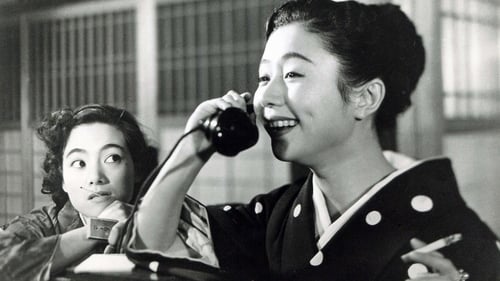
Theatre Play
Famed onnagata (a man who plays women's parts in Kabuki) Tamasaburo Bando follows up on the success of his directorial debut, Gekashitsu, with this soft-focused romance about love and obligation, based on a novel by Kafu Nagai. Set during the Meiji period (1868-1912), Kaede (Sayuri Yoshinaga) is the former mistress of a wealthy merchant. When he dies, she is forced out on the street and forced to give up her young daughter to the merchant's family. The film opens with her working in a high-class brothel abutting Tokyo Bay. Though she has passionate affection for a drug wholesaler, whom she loves as well, Kaede is swamped with not only debts to the bordello and family obligations -- she is expected to support her parents and her sister -- but also guilt over losing her child. This pain is only increased when Kaede learns that her daughter is being abused. She does the only thing she can: She buys back her child by signing on at the brothel for a longer stint.

Production Supervisor
Кёити Мита происходит из уважаемой семьи, он может позволить себе быть честным и прямо заявляет начальству в лицо, что он думает. В итоге его из менеджеров понижают до простого работника и отправляют в Осака. Все меняется в его жизни. Он вынужден оставить в Токио больную мать. Он даже думает о самоубийстве. Он мечтает об уединении. Его приютом становится затрапезная гостиница Суйгэцу. Здесь он встречает множество людей, которые живут не так, как им хочется. Это ещё одна грустная элегия Госё, в которой почти ничего не происходит, но каждый продолжает жить, несмотря на то, что счастье не придет никогда.

Screenplay
A self-absorbed young actor humiliates an elderly Noh performer, who then commits suicide. His act of cruelty compels his father to disown him, leading the once promising actor to a life on the streets. But his desire to win back the respect of his father and the affection of the dead actor's daughter pushes him toward a more noble existence. Naruse employed a delicately structured mise-en-scene in this family melodrama, which evokes the work of Josef von Sternberg.


